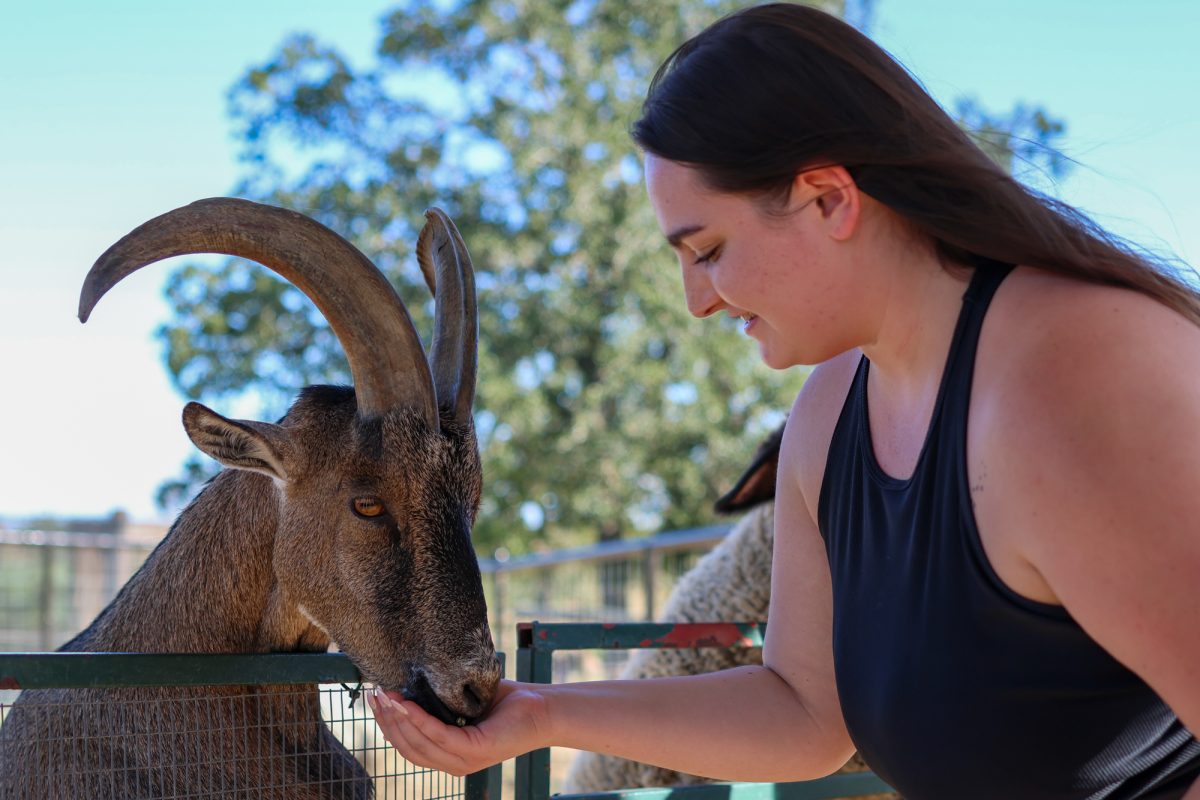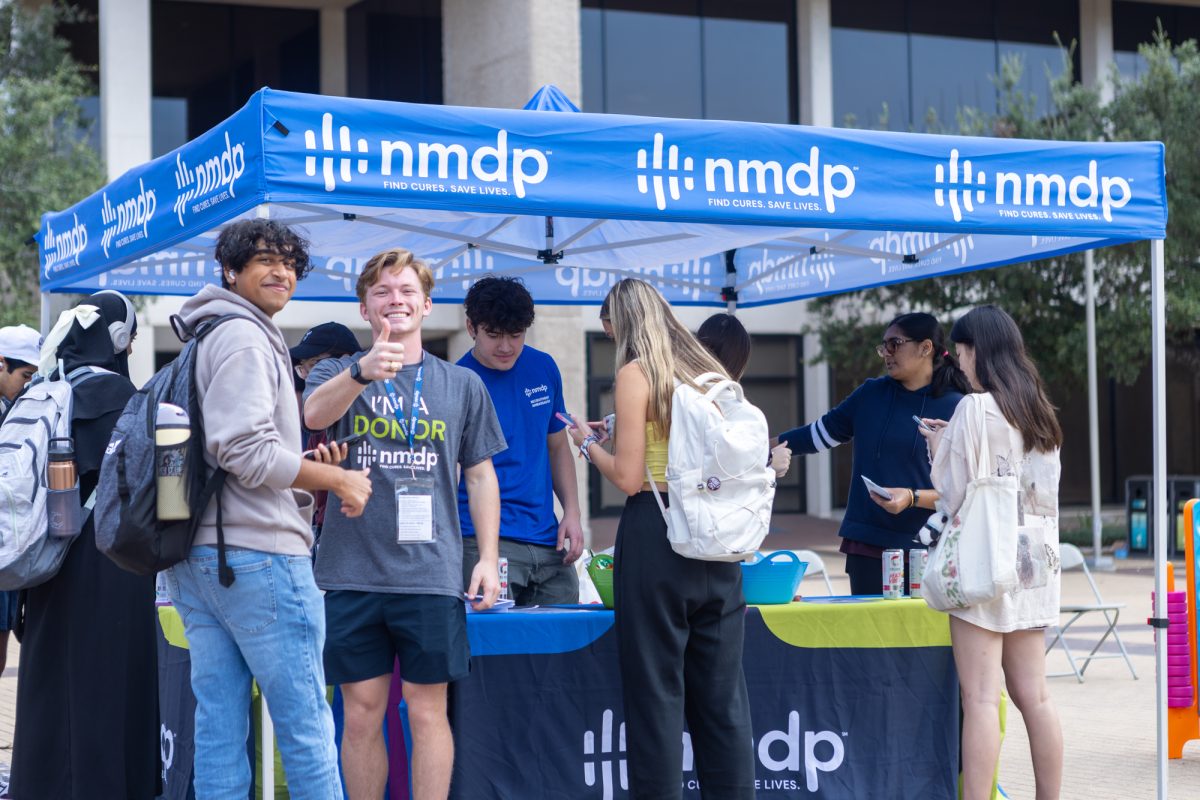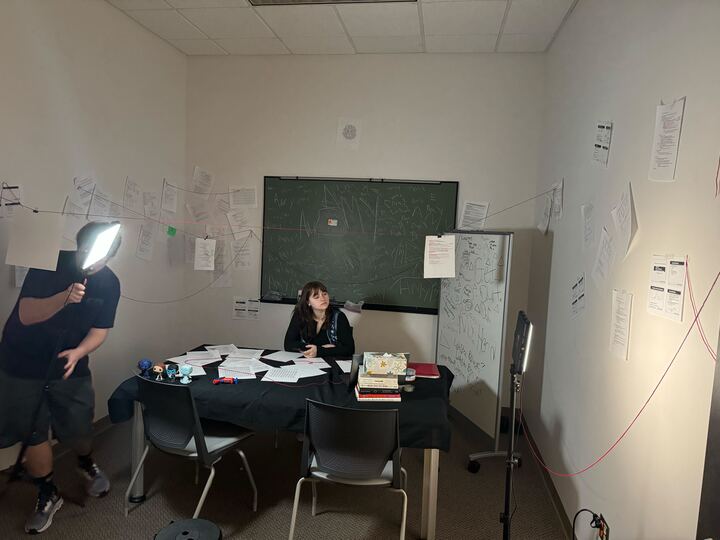Having been diagnosed with an eating disorder growing up, founder of Collaborative Aggies Leadership Initiative Emily Andersen knows how difficult it can be to bring about eating disorder awareness.
“It’s hard to spot it from the outside,” Andersen said. “It’s hard to find out, because they hide it so well. I had an eating disorder until I was 14 and my family had no idea until I was in the hospital. Mostly the symptoms are personality changes, being really irritable and really uncomfortable around food, avoiding going out to eat and becoming more isolated. You can’t just see it from looking at them.”
Anderson said her organization hopes to use this week, which has been dubbed National Eating Disorder Awareness Week by the National Eating Disorder Association, as a platform to educate students about this affliction that so many find difficult to describe.
In addition to a candlelight vigil Thursday at Rudder fountain, CALI has organized body-positive events like “Trash Your Insecurities,” which will take place in the MSC Monday. Other events throughout the week include spreading information through chalk writings around campus. CALI also encourages students to wear purple on Friday to spread awareness.
Andersen said the events will help dispel stereotypes surrounding eating disorders that make it difficult for those afflicted to be taken seriously.
“A lot of people call anorexia ‘a rich white girl’s disease,’” Andersen said. “The stereotype is unbelievably wrong. Eating disorders don’t discriminate, and they are not a cry for attention. It’s not a choice.”
Andersen said eating disorders are complex and have different symptoms.
“The three most common eating disorders are Anorexia, Bulimia, and binge eating,” zndersen said. “Binge eating is the most common, and was only just recently named as an eating disorder.”
Because eating disorders are not fully understood, Andersen said raising awareness and advocating for research is crucial. Andersen said what people fail to realize is that eating disorders are linked to other health issues.
“And a lot of times, eating disorders are connected — most commonly to bipolar disorder — but also depression and other mental health illnesses,” Andersen said. “They need to be treated, and treated like a patient of any other kind of disease.”
Ashlee Speaks, an agribusiness junior and member of the NEDA board at A&M for CALI, said she was surprised to discover just how prevalent the problem of eating disorders is.
“The most shocking thing for me was that I came into this organization knowing nothing about eating disorders,” Speaks said. “It breaks apart families and lives. It kills people. I had no idea, and it made me see that this is serious.”
Speaks said the problem stems from a lack of value placed on mental health in the United States.
“Mental health is not valued in the U.S. It’s difficult to get medication and help because of the lack of knowledge,” Speaks said.
Speaks said the purpose of this week is to get everyone involved in spreading awareness.
“We want to stop the rising statistic. That’s the ultimate goal. And everyone can make a difference,” Speaks said.
CALI hosts week of body-positive events, combats eating disorders
February 22, 2016
Photo by By Anthony Eason
Collaborative Aggies Leadership Initiative will host National Eating Disorder Week and put on a variety of activities to spread awareness.
0
Donate to The Battalion
$0
$5000
Contributed
Our Goal
Your donation will support the student journalists of Texas A&M University - College Station. Your contribution will allow us to purchase equipment and cover our annual website hosting costs, in addition to paying freelance staffers for their work, travel costs for coverage and more!









